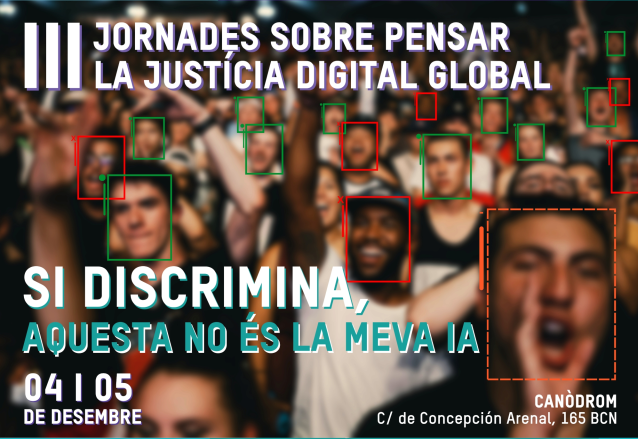
The process of designing, developing, and implementing artificial intelligence (AI) is deeply influenced by discriminatory dynamics. The cross-sectoral application of these technologies compels us to address the complexity of the phenomenon from a critical and global perspective. Within this framework, the Global Digital Justice project, led by Oxfam Intermón and the Global Justice Directorate of the Barcelona City Council, focuses on the impacts of AI on inequalities.
This event consists of two dialogues that address this issue from complementary perspectives:
Dialogue 1: Global North and South, Inequalities in the Conception of AI
A conversation between Paola Ricaurte and Milagros Miceli will explore how structural imbalances between the Global North and South influence the development of an AI model that carries inherent discriminations from its inception. The discussion will cover:
- The role of the hegemonic economic model and major technology corporations.
- Technical and economic disparities between different regions.
- The impact of regulations on perpetuating these dynamics.
This dialogue will examine how these factors embed a discriminatory character in AI systems from their very conception.
Dialogue 2: Discriminations in the Uses of AI
The second conversation will bring together Paola Vila-real, Salmana Ahmed, and Afef Abrougui to reflect on the vectors of discrimination associated with the specific uses of AI. Topics will include:
- Training datasets and the biases they incorporate.
- Algorithms and their ability to reproduce or intensify discriminations.
- Impacts in areas such as institutional racism, gender inequality, access to public services, the management of public space, and human mobility.
The experts will delve into how these technological tools can become technosocial artifacts that perpetuate inequalities and exacerbate mechanisms of discrimination across multiple domains.
